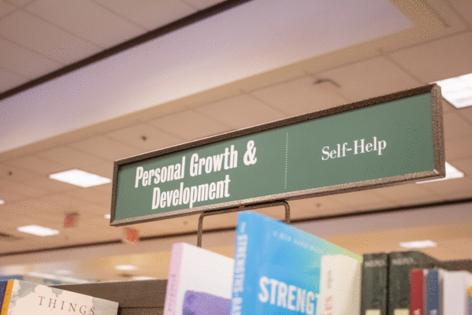Commentary: Are self-help books really helping us?
Published in Op Eds
If you’re a reader, and you’re on Instagram, chances are the algorithm has fed you posts promising that “this book will change your life” or touting “five books that made me successful.” These claims are compelling. They make me pause and ask a deeper question: Are self-help books really helping us?
I’ll say this up front: One book cannot change your life. One self-help book will not transform your mindset, your habits or your emotional health, but the habit of reading might.
I recently read “The Mountain Is You” by Brianna Wiest. It’s a popular title in the self-help space — concise, digestible and motivational. It reads like the TikTok version of a self-help book: short chapters, compact insights and neatly packaged advice on how we sabotage ourselves. But it lacks depth and doesn’t provoke critical thought. It offers little in the way of evidence-based guidance, psychological analysis or room for ambiguity.
In our fast-paced world, readers want quick fixes and digestible answers. But philosophy, healing, and self-understanding cannot be condensed into bite-sized commands. A book that tells you what to do and insists you are the problem risks flattening the complexity of the human experience.
I do believe mindset matters. Optimism, when grounded in reality, can be powerful. But self-help culture tends to treat optimism like a cure-all as if every problem is just a thought pattern waiting to be reversed. Sometimes, realism is what we need. Sometimes, we don’t need affirmation; we need analysis.
Here are some of the problems with self-help books:
They put the responsibility on the individual
Most self-help books promote an internal locus of control, the belief that we are responsible for everything that happens to us. While this can be empowering, it can also become toxic. If you’re facing trauma, oppression or systemic barriers, the “just fix your mindset” message is not only unhelpful, but also it can lead to shame and self-blame.
They often lack scientific foundation
Most self-help books are not rooted in neuroscience, psychology or behavioral science. They’re anecdotal, motivational or philosophical; while that can be useful, it isn’t evidence-based science.
They oversimplify complex issues
Mental health struggles such as depression, anxiety or addiction don’t resolve through mindset shifts alone. These are medical, psychological and social issues, not productivity problems.
They offer illusions of progress
Many people read self-help books and feel temporarily inspired. But inspiration isn’t the same as transformation. Reading without action can create cognitive dissonance, the feeling that you’re changing simply because you’ve consumed new ideas, even if your behavior stays the same.
They are not universally inclusive
Self-help books often assume a particular kind of reader: someone who has time in the morning, access to wellness routines, freedom to make changes and autonomy over their choices.
But what about readers who live in multigenerational homes, who face economic precarity or who are navigating structural oppression? If a book is ignoring global norms and targeting a certain population, how can it be helpful to all humans?
Some books in this genre, however, are truly valuable. One example is “Atomic Habits” by James Clear, and it is good because it provides structured approaches to behavioral change, not just motivation. Creating a way of life that suits you the best, that gets the best out of you, helps you live your purpose, is an ever-changing process.
Change needs more thought, deeper thoughts, than a book just telling you what to do. So, if you really want to improve your life, question your purpose, develop a way of thinking, broaden your perspective or even improve your habits in general, I suggest reading philosophy books. Philosophy books are more elaborate and thought-provoking versions of these modern self-help books.
My suggestions? Read to learn and have fun. Read as a hobby and as a way of living, not just to improve yourself. Do not read thinking that a book will change your life.
Read books that challenge you, not just ones that affirm you. If you truly want to grow, don’t just read self-help books. Read philosophy. Read psychology. Read fiction. Read anything that expands your thinking and deepens your empathy.
Build real-life connections. Be with genuine people, who are genuinely positive and striving for success (if not successful) — those ambitious people who lift you up.
If you read self-help, let it be a supplement, not a substitute for therapy, mentorship or systemic change. Be skeptical of any book that implies you alone are the problem or you alone are the solution.
Live authentically! Authentic living with integrity is happiness.
Self-improvement is a noble pursuit. But make sure you are not living someone else’s ideals. You define your goal; you go at your own pace.
We are all trying to get better, learn, evolve, be the best version of ourselves and connect with each other. We are all similar: We all have moments when we feel inadequate, and we are all in this together.
If things feel fast-paced, like you need to constantly improve, if you feel like you cannot catch up, maybe slowing down is what you need. And maybe you can slow down by reading meaningful books, or novels that you enjoy, and not a self-help book.
One book won’t change our life, but the habit of reading might.
____
Ranju Kunwor is a hematologist-oncologist and an assistant professor of medicine at Saint Louis University. She leads a nonfiction book club committed to helping people “read more and scroll less.”
_____
©2025 Chicago Tribune. Visit at chicagotribune.com. Distributed by Tribune Content Agency, LLC.

























































Comments